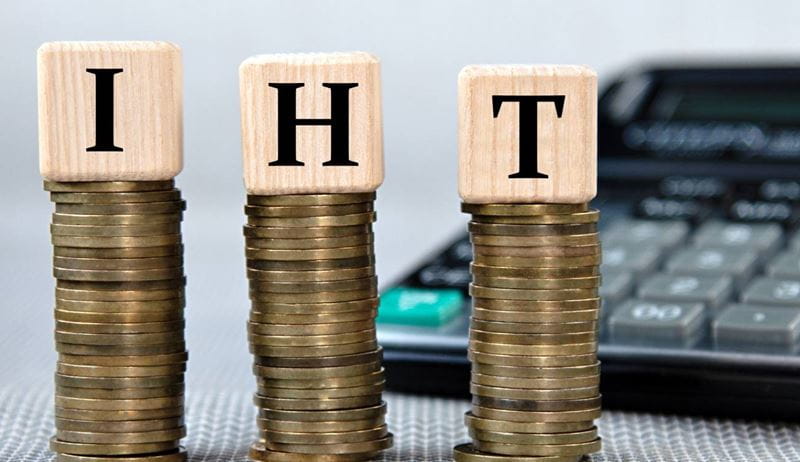
This article is for general guidance only and is not financial or professional advice. Any links are for your own information, and do not constitute any form of recommendation by Saga. You should not solely rely on this information to make any decisions, and consider seeking independent professional advice. All figures and information in this article are correct at the time of publishing, but laws, entitlements, tax treatments and allowances may change in the future.
Pension pots are due to become subject to inheritance tax from April 2027, as announced in Labour’s Autumn Budget last year.
It was a surprise announcement that has left many retirees worried. Are there steps you can take to reduce a potential tax burden for your loved ones in future? Or if you’ve already put inheritance tax (IHT) plans in place, do you now need to rethink them?
The first thing to do is work out if you’ll be affected. Most people don’t pay IHT, and don’t need to worry about this rule change to pensions.
Let’s recap how the tax works. IHT is charged at 40% on estates worth more than £325,000. So if when you die, everything you own including your house, savings and investments adds up to more than £325,000, the amount above this level may be subject to IHT.
However, this doesn’t always apply. If you pass everything to your spouse or civil partner when you die, there’s no IHT to pay. Your unused IHT allowance also passes to your spouse when you die. If you leave your main home to your children or grandchildren, the threshold can increase by a further £175,000 to £500,000. It means a couple who leave their main home to their kids or grandkids have a combined tax-free threshold of £1 million.
Only a small proportion – just over 4% of estates in the latest figures – pay IHT, about 27,800 a year. But the combination of rising house prices and the fact that IHT allowances have been frozen until 2030 means this number is expected to go up.
Currently, pensions sit outside your ‘estate’ and aren’t included in IHT calculations. However, from April 2027, this is due to change. The government estimates that an extra 10,500 estates will become liable to pay the tax – around 1.5% of total UK deaths – as a result of the change.
And about 38,500 estates will pay more IHT than would previously have been the case. If you have a large pension that you think could push your estate over your tax-free threshold, or if you’re worried that the pension changes could trigger a higher IHT bill than you were expecting, it’s worth thinking about what action you can take to reduce the tax bill your family will need to pay when you die.
All inherited pensions will become subject to inheritance tax – with the exception of pensions left to a spouse or civil partner, as all money and assets left to them escape IHT. This includes defined contribution schemes like workplace pensions, personal pensions and self-invested personal pensions (SIPPs), as well as lump sum benefits paid by defined benefit schemes (although dependants’ pensions will remain tax-free).
For example, if you have a SIPP worth £200,000 and your estate already exceeds the tax-free threshold, your estate’s potential IHT bill will increase by £80,000 from April 2027.
Some annuities that continue beyond the retiree’s death could also be affected. Ian Dyall, head of estate planning at Evelyn Partners, explains: “If the pension holder has, for example, an annuity which continues for 10 years and is payable to a partner who is not a spouse or civil partner, then that continuing income may be liable to IHT.”
Mark Chicken, chartered financial planner at The Private Office, stresses: “The most important thing here is not to rush into anything. Pensions remain sheltered from inheritance tax between now and April 2027.”
Some pension savers may have previously made plans to reduce an IHT bill, by tactically spending other savings like ISAs first, in order to pass their pension wealth to loved ones when they die.
This was a good strategy, as pensions have not been liable for IHT whereas ISAs are. Tom Kimche, head of advice at Netwealth, notes: “Many clients treated their pension as an IHT-efficient asset which means they either earmarked it for the next generation, or they delayed drawing upon it as, if they passed away prematurely, it could pass to their children IHT free.” But things are likely to change in a couple of years’ time, so it’s wise to start thinking about whether you need to change your plans.
Chicken adds that there are several ways to reduce the impact of the changes, but “it’s important to remember there is no one-size-fits-all solution, and seeking professional advice is recommended to navigate these options effectively”.

Whether you’ve yet to put any IHT plans in place or you need to tweak your strategy, there are some steps you can take to protect yourself and reduce a potential IHT bill.
One of them is to consider gifting your pension cash to loved ones before you die. But it’s not just IHT you need to be mindful of here; make sure you also consider the income tax implications of taking money from your pension.
Gifting the tax-free cash part of a pension won’t trigger an income tax bill, but gifting the taxable part could. Dyall says some of his clients worried about the changes are already taking the tax-free cash from their pensions to make sizeable gifts to their loved ones.
Try and look at your savings and investments holistically, rather than purely focusing on your pension wealth. For example, you may have money sitting in a savings account and you’re paying tax on the interest.
It could be better to gift that money than pension savings, which won’t be taxed until you withdraw money or die. Kimche says he has clients who are planning to start spending their pensions while gifting other assets instead, such as cash savings, investment accounts and ISAs, due to the Budget announcement.
Once you’ve worked out which pot(s) of money to gift – if any – you next need to think about IHT. Your gifts might not automatically be free of the tax.
Dyall explains: “If you give something away, unless the gift is covered by one of the inheritance tax exemptions, you will need to live for seven years from the day you make the gift before the tax liability falls away.”
The seven-year rule means that if you die within seven years of making a gift, there will be IHT to pay on it. (The rate may potentially reduce if you die within three to seven years, due to what is called “taper relief”, but taper relief only applies if the total value of gifts made in the 7 years before you die is over the £325,000 tax-free threshold, and then only on the amount above the threshold.)
There are some IHT exemptions that might come in handy when giving money away. One that is not used very often, but which Dyall thinks will become more popular following the Budget changes, is the exemption for “normal expenditure from income”. This IHT exemption could be used to make regular gifts from pensions that were previously not being drawn.
The gift is immediately exempt if it meets three criteria:
If you can’t use this exemption, and you’re planning to gift, say, your tax-free cash and hopefully survive for seven years, think carefully about how much money you need in retirement and whether you can afford to give this money away.
Kimche warns that pension savers may “gift more than they should, trying to avoid IHT, and then find themselves in a perilous position if they spend more than anticipated or live longer. Investment returns could also disappoint”.
Another way to cut a potential IHT bill is to buy insurance. Some experts have predicted that sales of annuities, an insurance product that gives you a guaranteed income in exchange for a pension pot, will rise due to the upcoming IHT changes.
If you buy an annuity, you’re effectively getting rid of your pension pot (therefore reducing the value of your estate that’s liable for IHT). Just be aware that if you choose one that pays an income to someone who’s not your spouse or civil partner after you die, that income could be subject to IHT.
It’s also worth remembering there are risks with buying an annuity. For instance, you could die soon after you take one out, and if it’s a single-life annuity, the insurer gets to keep the rest of the pot. In addition, buying an annuity is an irreversible decision, so it's crucial to consider your options carefully and seek financial advice.
If you do buy an annuity you can either enjoy the income yourself, or gift the money away.
Alternatively, you could buy whole of life insurance, perhaps using some of your pension savings to buy the policy. In some families, the beneficiaries of the policy (usually the children) choose to cover some or all of the costs of the policy. The lump sum paid out on death can be used to help settle any IHT bill.
However, premiums don’t come cheap. According to The Private Office, a 70-year-old man in good health taking out a policy that pays £80,000 when he dies would face a fixed monthly premium of about £200.
There are also life insurance policies where premiums rise over time. In that case the same person might start paying £83 a month, which would jump to £288 after 10 years, and after 15 years to £572.
Chicken says it’s essential to get the insurance policy written in trust, which will keep the payment outside the deceased’s estate. “If it’s not, the lump sum would simply be added to the estate, increasing the tax liability.”
He adds that he has several clients who are in good health and have already applied for whole of life insurance (in trust) to help mitigate the impact of the April 2027 changes.
Again this is a complicated area of tax planning and it’s important to seek advice first.
Money aside, there are also concerns around the logistics of how IHT on pensions would be paid. The main fears are that it could cause stress and delays for grieving families, especially where people have multiple pensions, or if they hold SIPPs that include property as an investment, which may then need to be sold.
The idea is that pension companies will provide information to the executors, who then complete forms and send them to HMRC, who then calculate the liability and send back a list of what each pension provider and the estate owes. “That then has to be sent to the pension providers to deduct the tax at source and pay HMRC before they can release the remaining pension funds,” says Dyall.
Kimche notes: “The new rules will certainly complicate an already fairly arduous probate process.”
However, the current proposals have only recently been subject to a government consultation (which ended in January) so we should find out more later in the year.


We're here to help you make the most with your money. With a rage of financial services designed with over 50s in mind.


Find out the pros and cons of downsizing to cut your IHT bill.



Learn how to identify and change your attitude to money
